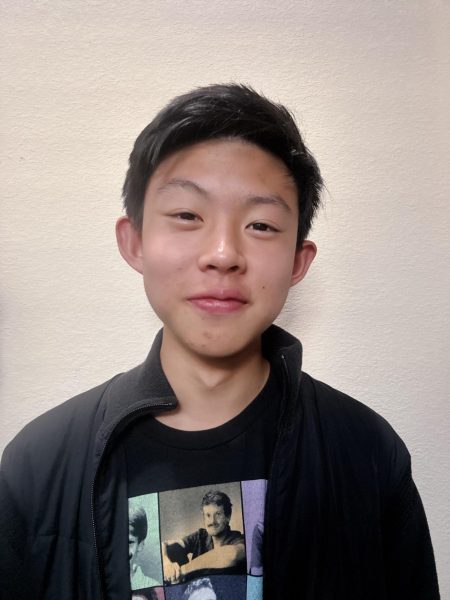This year, the DHS Drama Department’s fall play is a production of Gore Vidal’s political comedy The Best Man. It follows two men, both running for president, who are vying for the nomination of their party and will stop at nothing to get it. Against the more sober backdrop of one of the most significant elections in our nation’s history, the play offers a satirical and biting critique of contemporary American politics. We spoke with the director, Mr. Edward Hightower, about the play.
FL: This is your first time directing for DHS – how has the experience been so far?
EH: I absolutely love it. Working at Dublin High, and Dublin in general, is very different from other schools that I’ve worked at. I was shocked when high schoolers were excited at the prospect of doing this play. I expected that I would have to work hard to sell it to the group. But people are like, “wow, that sounds amazing.“ The support that we have here for theater and for the arts is extremely high, and it’s delightful.
FL: How did you come across this play, and why did you choose it? And how have you previously engaged with the work of Gore Vidal?
EH: I first read the play in about 2009. I found it in a drama bookshop and I knew Gore Vidal’s reputation as a writer – I know that he wrote Live from Golgotha, and I’ve read some of his essays, and some other fiction. And seeing that it was about an election, I just wanted to read it. And when I read it, it was exciting and very interesting. I’ve read it many, many times. And I’ve always wanted to direct it. Especially now, since this is an election year.
FL: What do you want viewers to take away from the play?
EH: The thing about art–the closest I’ve ever seen anyone come to defining art–is that it is the expression of an idea within a given medium. And so, as a director, I am not trying to impose a vision. I am presenting the idea, and they draw their own conclusion. They interpret it, they take from it what they will. And that is what separates art from propaganda. Propaganda has one message and one message only – for example, all advertising is propaganda.
FL: That makes sense. I suppose what I was trying to ask was what do you think Gore Vidal is trying to say in this play? And what do you take away from it personally?
EH: What I’ve taken away is that not much has changed. It was written in 1960 and it feels like it was written yesterday. Certain hot button issues aren’t mentioned in it, but it still feels like it was written yesterday.
As for what I think he’s trying to say–I don’t want to spoil it, but that phrase, “May the best man win,” is loaded with many different possible meanings and interpretations. What does it mean to be the best? It means different things for different characters, and that influences how they act.
FL: Right. I also don’t want to spoil it, but there are many moral and ethical dilemmas in this play that the audience will come away wrestling with.
EH: Yeah, and hopefully discussion. I love it when an audience is talking about the central nugget of the play when they leave. I think that is important.
FL: Right. And discussion is the lifeblood of politics.
This play was written in 1960 and it’s still relevant. Do you ever think there will be a point when you decide to stop directing it, because the world has changed so much that it’s not relevant anymore?
EH: Well, any play that is about humans in a human situation is going to be relevant. Like the musical Chess – the Cold War is over, but the dilemma of the characters in that musical is still relevant. And so I think that the moral and ethical dilemmas that are raised in this play are not going to go away.
FL: How do you see the relationship between art and politics? Can art be an effective agent for stimulating political change?
EH: There’s that line from Hamlet: the purpose of theater is to “hold a mirror up to nature: to show virtue her feature, scorn her own image, and the very age and body of the time his form and pressure…” That’s what acting and theater does: give society a chance to see itself.
But, you know, everything is politics. Life is politics. Hockstader [a character in the play] is absolutely right. What they do is life. Everything you do is political. Art is political inherently. And anyone who says it’s not is either deluded or or just doesn’t get it.
As for political change: art can be very, very, very effective, but if you only want one message, that is propaganda. So the artist must be aware . . . the work needs to have multiple possible interpretations.
FL: Are there any last things you might want to say to people coming to see the play?
EH: Please arrive early, and silence your cell phones. And no matter how you feel about recent events – how lucky are we to be living in a country where we can put on a play about politics and about the presidency, and nobody in our family is being investigated? Nobody’s in danger, right? Nobody’s getting strontium put in their tea. As flawed as our nation can be, we have this freedom, and that is a good thing to celebrate at a time like this. Please come see the play, and enjoy hearty discussion.




































